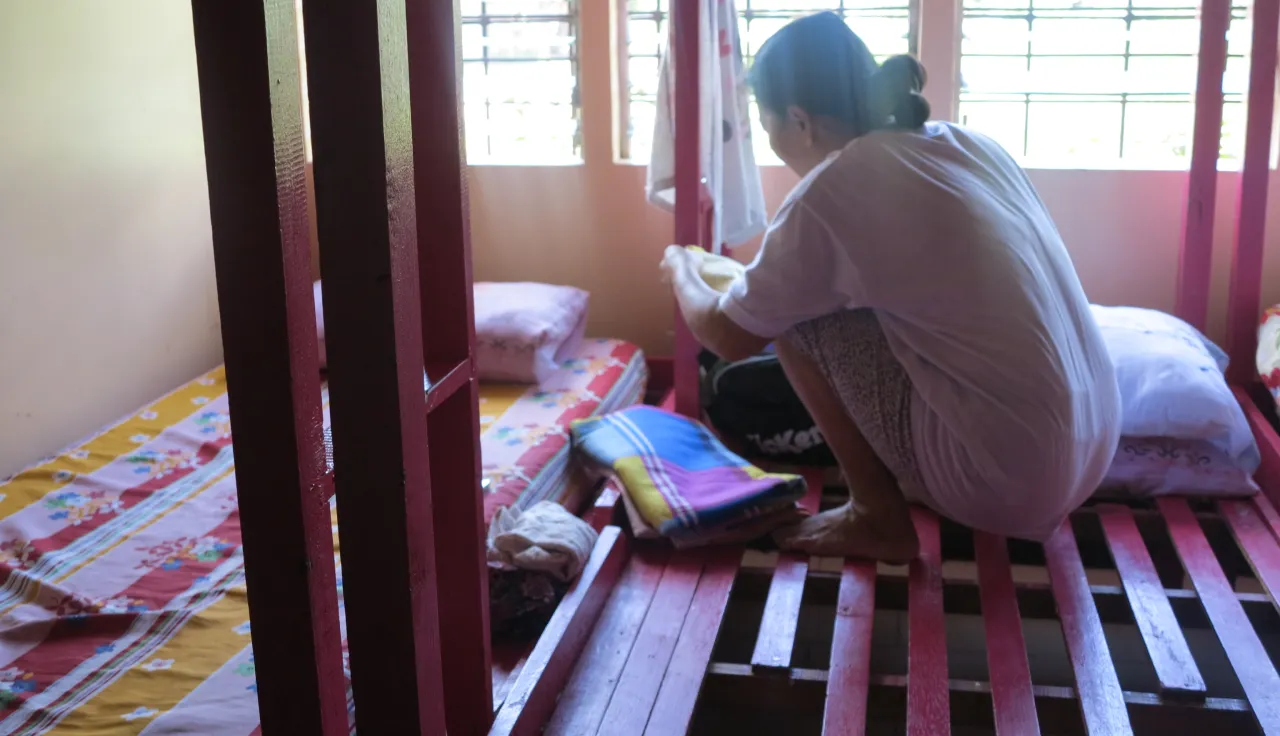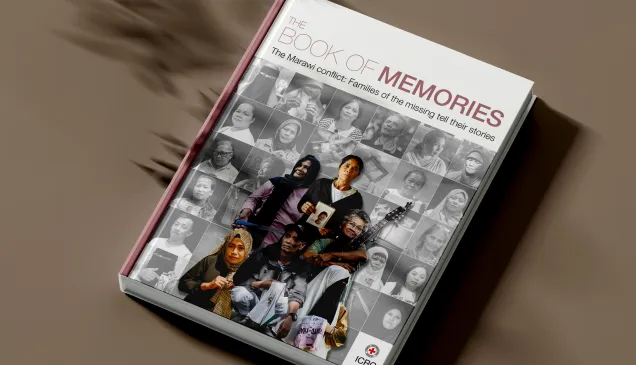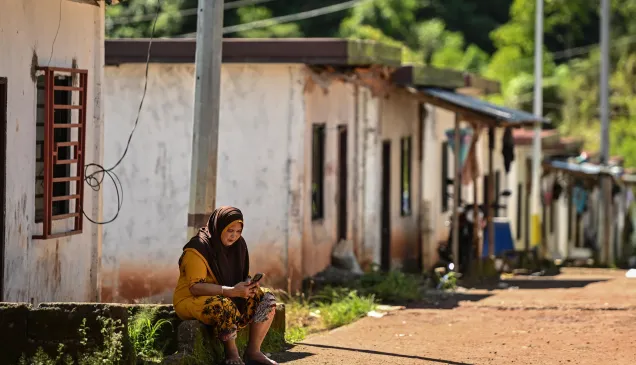Life in the shadows: A former migrant shares her story

In a ward in Zamboanga City Medical Center with her 2-month-old baby, Luisa* was still in a daze as she tried to narrate her ordeal.
For 2 years, she and her family were able to blend in with the local community while living as migrant workers on the eastern coast of Malaysia until she was found without a regular status and proper documents during a random check in June 2014. She was then 8 months pregnant.
Luisa's family used to reside in Balabac town, in the southernmost island of Palawan, Philippines, surviving on the 600 Philippine pesos (14 US dollars) a week her husband earned from fishing. Life wasn't easy for their family of five, often resorting to borrowing from a local store when her husband didn't have enough catch.
"They say a fisherman can earn up to a thousand pesos (22 US dollars) a day there," she said. Like other families fleeing from the poverty and chronic conflict affecting the southern parts of the country, Luisa and her family were convinced that they would gain better opportunities elsewhere.
They decided to take the risk to travel regardless, resorting to boats operated by smugglers at a price of 1,500-3,000 pesos per person for a trip that would take 8-10 hours.
Upon arrival, they realized they could not improve their life as they had hoped. Some days, they would have nothing to eat when there was no catch, and they lived in fear of being arrested, knowing that they did not possess legal documents.
Nearing the last month of her pregnancy, Luisa's fears came true after she was arrested and brought to an immigration detention facility. She gave birth in a nearby hospital and brought her baby back to the facility the next day.
Soon after, her newborn got sick and spent the next 2 weeks back in the hospital to receive medical care while she remained in detention. "I found it difficult to be away from my baby without any idea of what was happening with her. I couldn't stop crying," she recalled.
Though visiting rights for families existed, for fear of also being discovered by the authorities, none of her relatives visited her during her detention. After 2 months of not knowing what her and her baby's fate would be, she was informed that she was finally going home.
"A boat usually arrives in Zamboanga once or twice per week with almost 200 deportees from Malaysia. They ride a commercial boat for almost 18 hours with other regular passengers, their economy tickets paid for by the Malaysian government," explained social welfare officer Jamila Arasid of the Department of Social Welfare and Development (DSWD) Processing Center for Displaced Persons in Zamboanga City.
Upon arrival, they are received by DSWD officials, sent to the Bureau of Immigration to process their travel documents, and then brought to the center, where an exit interview is conducted and their immediate needs are determined. Those with a medical condition are sent directly to hospitals.
Among them were Luisa and her baby, who had a serious infection on her leg.
As is often the case in detention places worldwide, maintaining a good level of hygiene is a challenge for authorities in order to prevent the spread of communicable diseases such as skin infections and tuberculosis. "Before anything else, we feed them once they arrive at the center and provide basic hygiene necessities. Some of them haven't had a proper bath for months," added Arasid. The processing center also provides deportees a temporary shelter, medical and psychosocial support, and transportation assistance.
Luisa and her baby are now living with relatives in Cagayan de Tawi-Tawi. She was reunited with her husband and children soon after they returned from Malaysia. Now that her distressing experience is behind her, she can't seem to understand why they decided to leave in the first place. "It's better here, more beautiful."
* The name has been changed to protect the person's identity.
Since 2010, the ICRC in the Philippines has assisted thousands of Filipino returnees by providing hygiene kits through the DSWD's Processing Center for Displaced Persons (PCDP) in Zamboanga City, and the Philippine Red Cross Tawi-Tawi Chapter starting in 2013.
To improve the living conditions in these facilities, the ICRC in 2011 helped in the construction or repair of some temporary shelters, the PCDP's kitchen and laundry areas, as well as the drainage system.
Story by Sarah Velasco, ICRC communication officer



